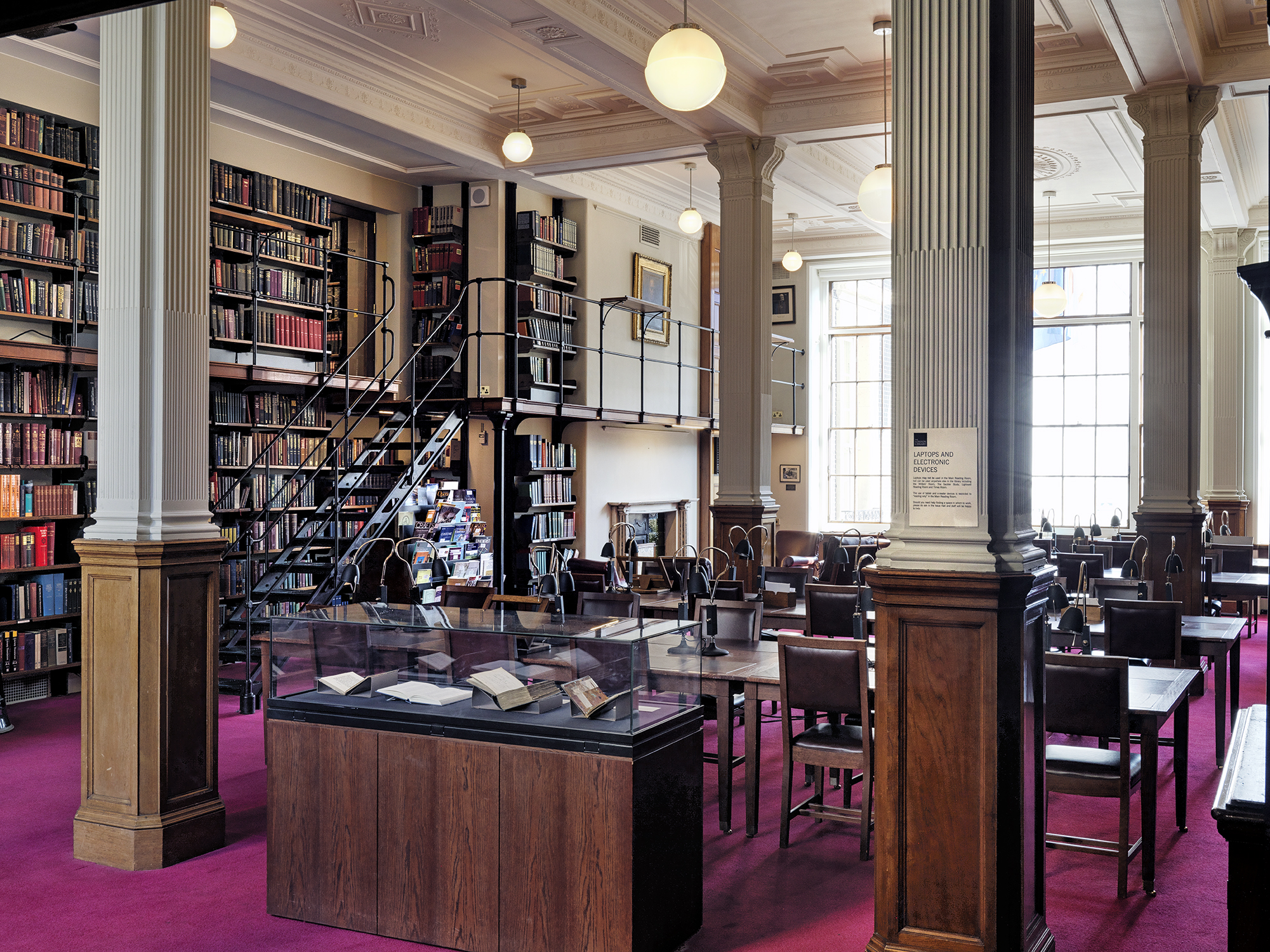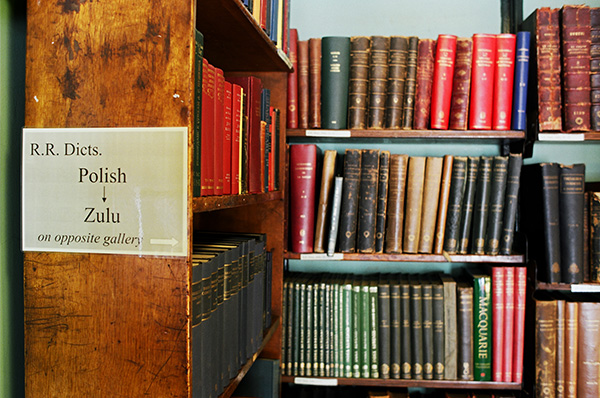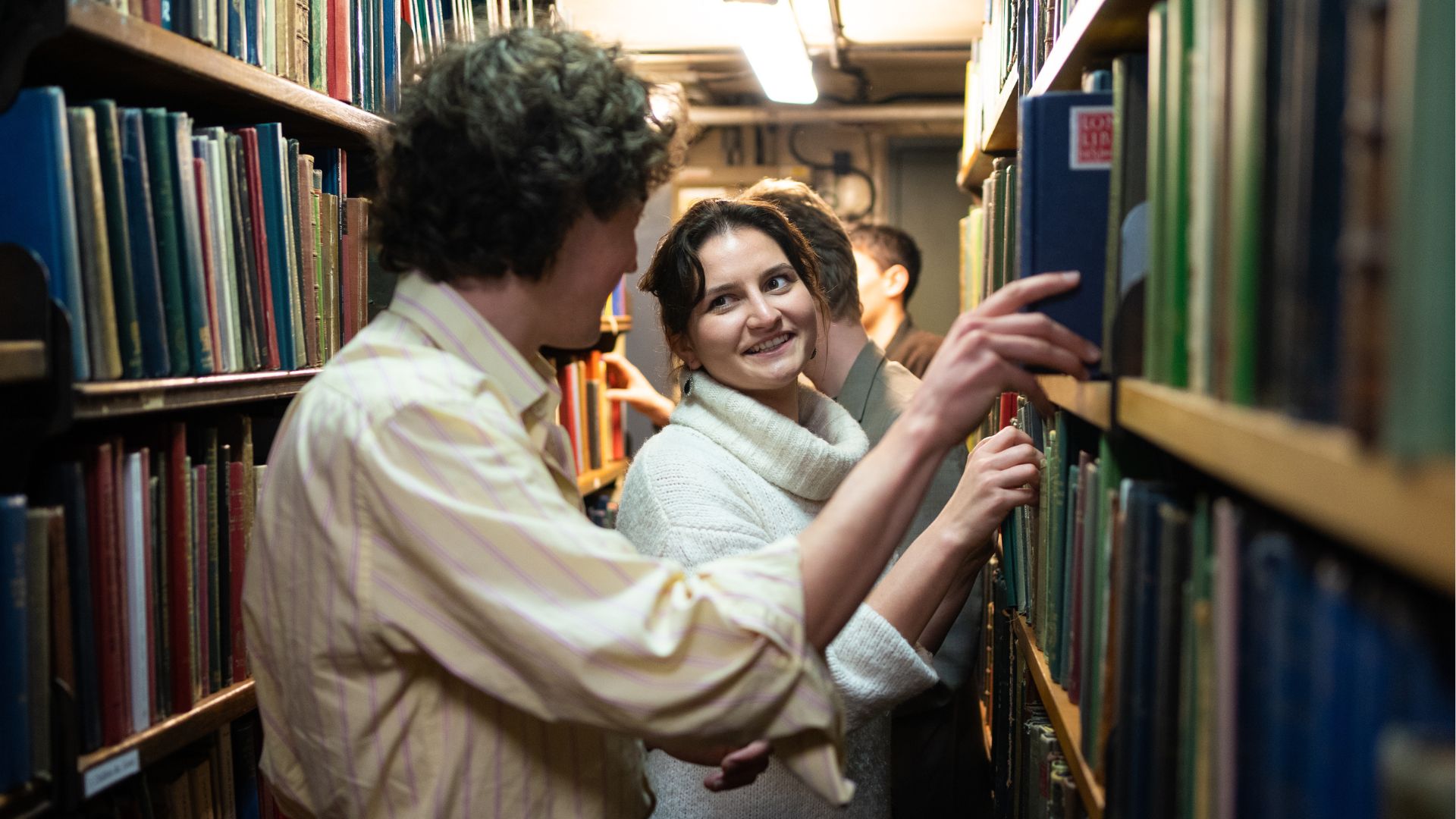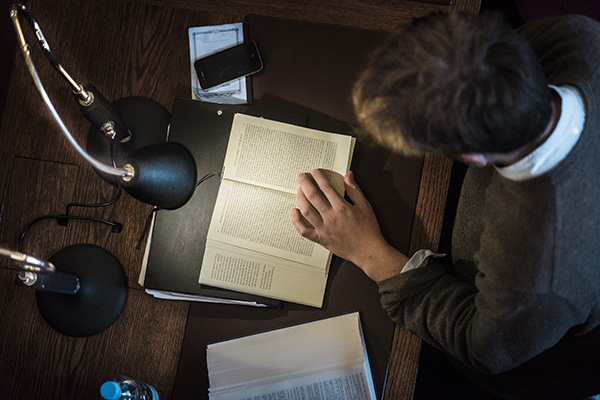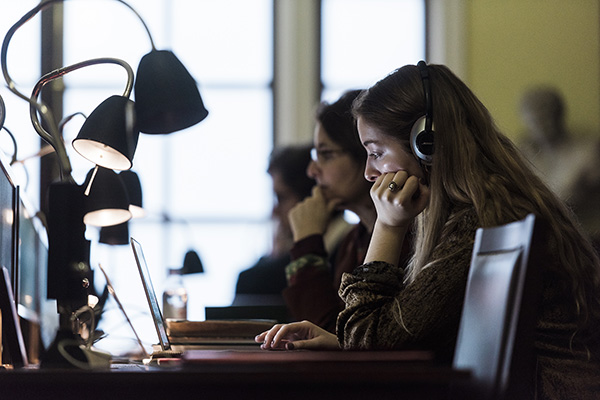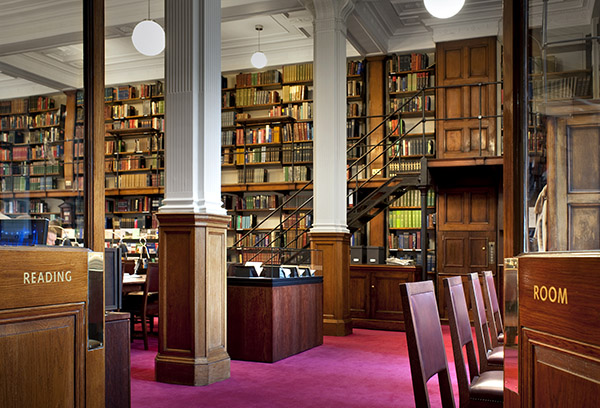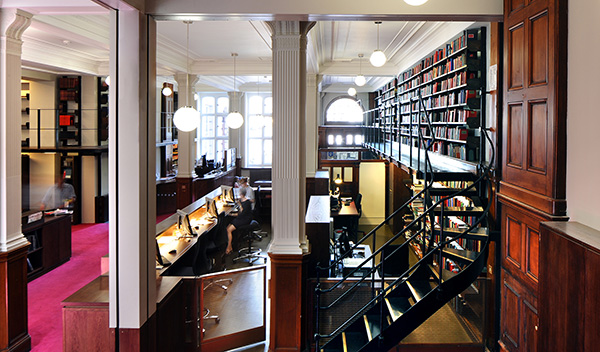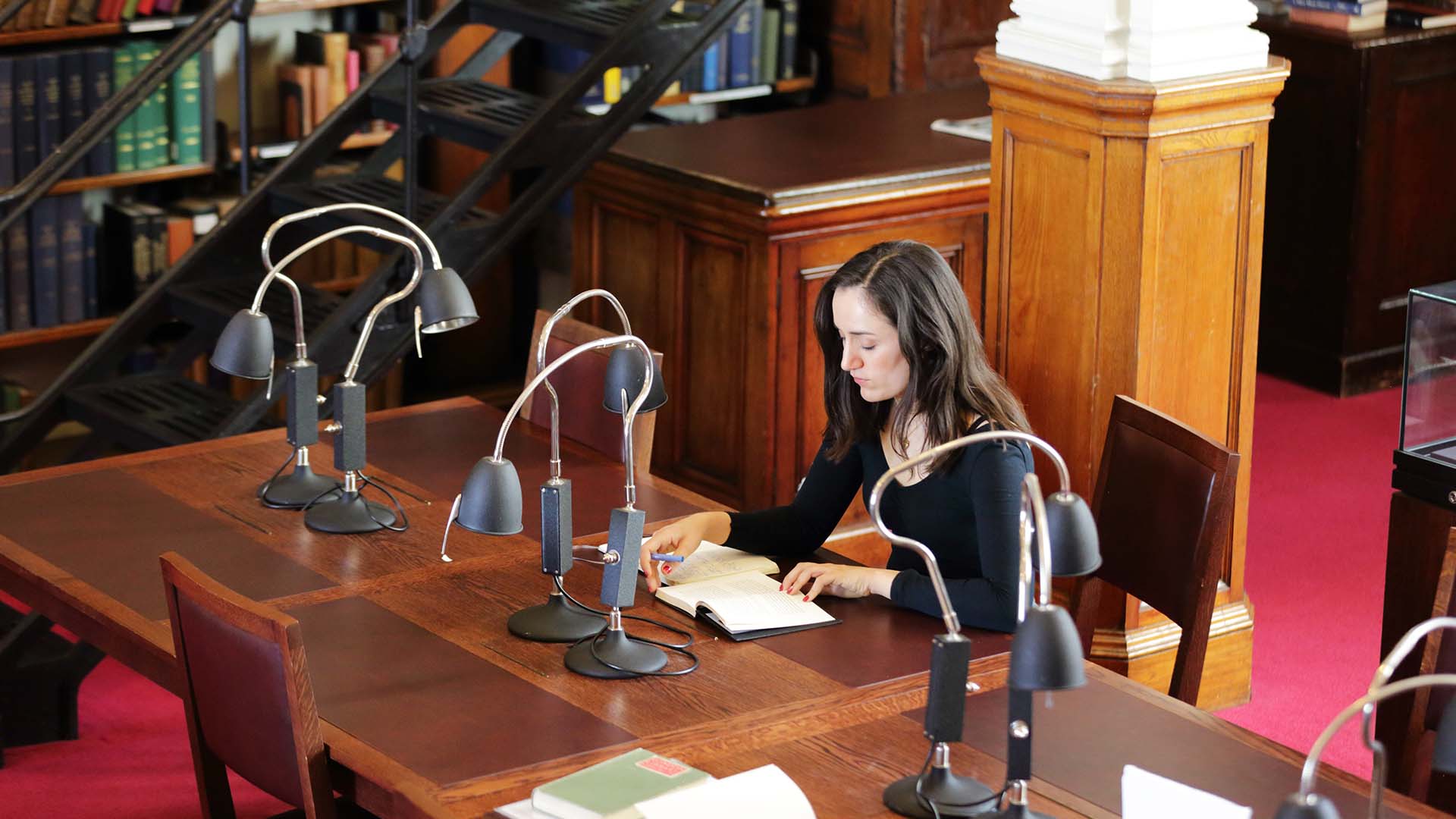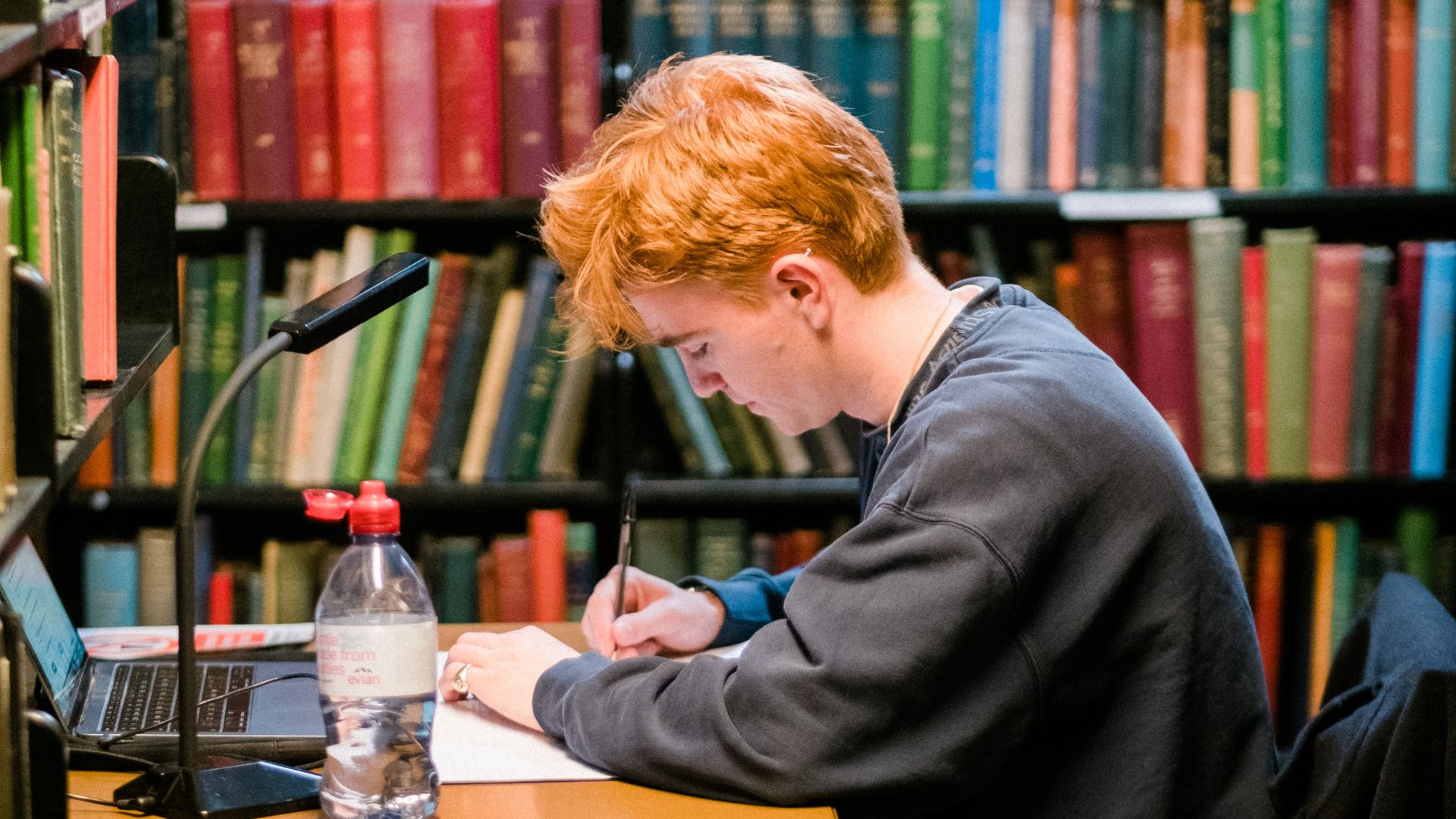Adopt a Book: Campus novels
To celebrate the start of a new academic year, why not Adopt a Book from the campus novel genre? Our stacks are full of novels about the lives of students, professors and their spouses, an ideal gift for the incoming student or returning teacher in your life. You’ll receive a personalised certificate, as well as the adoptee’s name written on a permanent bookplate inside the book.
You might want to consider:
· Philip Roth, The Human Stain
· J. M. Coetzee, Disgrace
· Dorothy L. Sayers, Gaudy Night
· Kingsley Amis, Lucky Jim
· Fleur Jaeggy, Sweet Days of Discipline
· Elif Batuman, The Idiot and Either/Or
· Joshua Cohen, The Netanyahus
· John Williams, Stoner
· David Lodge, Changing Places, Small World and Nice Work
· Brandon Taylor, Real Life
· Mary McCarthy, The Groves of Academe
· Donna Tartt, The Secret History
· Chad Harbach, The Art of Fielding
Adopt a book Find out more Adopt a Book: Faber & Faber
Adopt a Book: Faber & Faber
Founded 96 years ago in April 1929, Faber & Faber is one of the world’s best-known independent publishers. Published authors include notable Library members T S Eliot (who was both London Library President and an editor at Faber), Kazuo Ishiguro, Edna O’Brien and Harold Pinter.
To celebrate the Library’s connection with Faber & Faber, why not Adopt a Book written by a Faber writer from our collections? You’ll receive a personalised certificate, as well as your name written on a permanent bookplate inside the book.
You might want to consider:
· Plays One by Harold Pinter, including The Birthday Party and A Slight Ache
· The Collected Prose by TS Eliot
· Never Let Me Go by Kazuo Ishiguro
· Leopoldstadt by Tom Stoppard
· Country Girl by Edna O’Brien
· Thinking Again by Jan Morris
Adopt a book Find out more
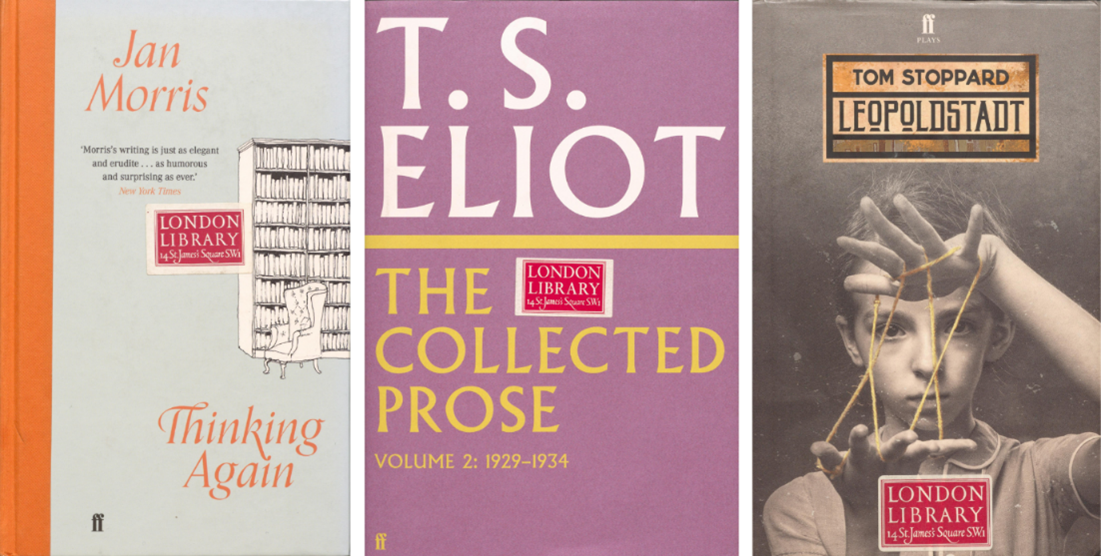
Nothing says 'Merry Christmas' like a London Library Gift Membership.
With an unforgettable building in beautiful St. James's Square, with beautiful rooms and spaces to read, write and think, The London Library is a magical place that has been at the heart of literature for over 180 years.
Give the gift of around one million books to browse and borrow, the opportunity to read and write in stunning atmospheric reading rooms, explore 17 miles of open-access shelves and exclusive access to the Library's online collections including JSTOR, special events programme, and more.
Discover membership options below.
Individual
Experience full access to the collection with full access to the building. Price below for annual Direct Debit.
£575/year
or £52.91/month
£287.50/year
or £26.45/month
Associate
This provides full access to our collection with limited access to the building. Associate Members may use the Library reading rooms and spaces on Mon and Tues, 5-9pm. Wed, Thurs 5-5.30pm, Fri & Sat 9.30am-5.30pm. Price below for annual Direct Debit.
£360/year
or £34.16/month
Remote Access
Experience full access to the collection and the other benefits of membership without use of the Library's reading rooms and spaces. Price below for annual Direct Debit.
£255/year
or £25.41/month
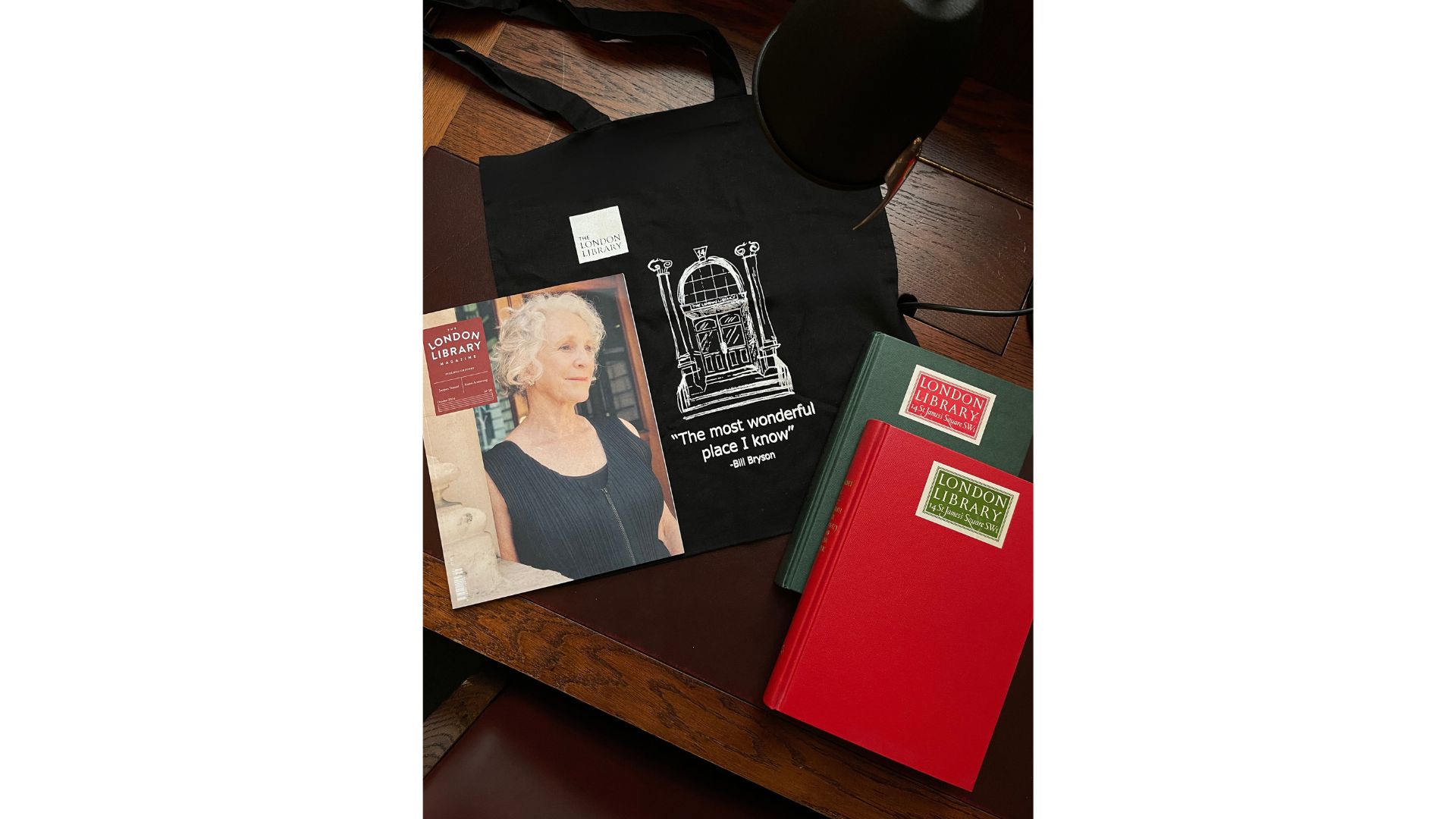
All gift memberships will include a London Library tote bag, London Library magazine, postcard for your gift message and will be gift wrapped with a Christmas ribbon.
Gift Membership offers:
→ An incredible collection of around one million books, almost all of which are available to browse on open shelves and borrow
→ Subscriptions to thousands of journals and periodicals and a wide range of digital resources, including JSTOR, British Newspaper Archive and more
→ Beautiful spaces in which to read and write, open six days a week with late night openings
→ Invitations to special events and discounts on our popular public speaker events
→ Expert staff, always on hand to assist with enquiries
→ A postal loans service anywhere within the UK
The London Library AGM | 26 November 2024
Director of Collections and Library Services Speech Notes
Good evening and it is a pleasure to speak to members present in the room and online this evening, and to many familiar faces.
I would just like to start by saying a bit about myself and my role – as this is a new format for the AGM as Simon said.
I joined the Library in January 2019 taking the newly established role of Director of Collections and Library Services – the first such role on the executive dedicated to the development and management of the Library’s collections and services alone.
I previously worked at Royal Holloway University of London for many years, earlier as a subject librarian, and in my final role as Acting Director overseeing the Library, Archives and the College’s Picture Gallery, and playing a leading role on the development of the £60m Library and Student Services Centre – now known as the Emily Wilding Davison Building.
Having done all that I was particularly attracted to this role by the collections and membership of the Library. The London Library and the vast collections it holds on browsable open access is well known in professional library circles, and having lived through a lot of changes to the way universities were providing access to content for students, and the way collections were being managed and used, I was particularly keen to come to a library where the collections are central to and so highly valued by its users.
Looking at the strategy at the time, I was keen to help the Library thrive and respond to its challenges – particularly in continuing to develop collections, including the excellent online library, and also in managing the Library’s space challenges – a remarkable 17 miles of shelving but nevertheless almost completely full. It is the more recent books that see the highest borrowing figures, with the last decade’s worth of publishing accounting for 6% of shelf space but 25% of loans. Continuing the Library’s strong acquisitions is essential to serve existing and future members. However, the more historical books being available for browsing and borrowing remain a strong part of the Library’s uniqueness and appeal. Therefore, managing the tensions of curating and growing the collection, maintaining access to the historical material and managing the space constraints is a challenge we have to tackle in order to keep the new material coming onto the shelves. Alongside print acquisition is the equally important online provision which sees very high levels of usage and which we are committed to expanding with resources that appeal to the broader membership.
Members may have noticed that the last three Member Surveys have included a number of detailed questions about the collections, both in print and online. Member satisfaction with the Library’s collection is very high, and those surveys have also highlighted areas where members perceive gaps in the collection and areas which need updating. This has provided useful data as to how you would like us to develop and extend our collections, while continuing to build on existing ones.
With regard to continuing acquisitions, you may have read in recent newsletters that our Head of Acquisitions, Gill Turner, retired after 20 years in that role and more years’ service at the Library before that. I have restructured the acquisitions and cataloguing areas to create roles of Acquisitions and Discovery Librarians who have shared responsibility for developing collections, taking specific subject areas each. The staff in this team, who are nearly all qualified librarians, have a combined 89 years of experience cataloguing at the Library, and could not be better placed to take over from Gill. You will see more about this team in forthcoming newsletters. They, working with me and Fay Harris, Head of Collections and Discovery, will begin exploring the areas identified by members as being gaps or needing updating – you may already have come across the graphic novel collection in The Art Reading Room. We are also building a bigger screenplay collection and exploring how to expand the Art, Fiction and Literature collections – making these more globally representative, and strengthening contemporary fiction. The financial headroom to extend into new areas and consolidate existing ones is further supported by the Refresh and Restore fund which many of you gave generously to last year.
To continue to provide space for new acquisitions, as I said earlier – we need to manage the existing holdings. During the six years since I joined, we have consulted with members over the removal of government publications from our shelves, the careful reduction of the Bibliography collection, and the removal to offsite store of periodicals available online to allow the creation of The Art Reading Room as part of our response to the pandemic’s social distancing measures which reduced seating capacity. These steps, all focused on lower use holdings, were all part of the Collection Capacity Management Strategy I developed with the Collections Committee’s approval in 2019, and which we now need to review and update for ongoing space management.
As the final part of delivering the 2019 Collections strategy we are focusing on a deduplication project of books on the open shelves which we hope will bring around 3 years’ growth space. And in fact Gill Turner has come back to help us with this as her deep collection knowledge makes her ideal for this rather painstaking work.
Remaining on the theme of space, thank you to all members who gave feedback during the consultation this summer over the foreign language material and closed runs of periodicals held in the basement. As we have reported in the newsletter, we will be retaining all of the Russian periodicals and society publications on-site, together with all other titles that members expressed a desire to see kept here in St James’s Square. The remainder will be moved off-site to a facility in Chatham, from where items can be retrieved in 1-2 working days, digital scans of articles can be delivered within 4 hours, and which also has a reading room if members wish to consult items there. Part of the space freed up by this work will allow for a greater area to securely house our archive and rare books currently on the open shelves. We will also create an area for invigilated use of archives and rare books, and hopefully a better service to members who use this material than through the rather awkward arrangements we have currently.
And, although this feels a little like old news now, within the 23/24 year we also saw the conclusion of the project to place security tags inside every item on the open shelves, thus securing our stock with in-book security for the first time in the Library’s history. The self-service kiosks which utilise the same technology were also introduced in the Issue Hall providing a further option for members to borrow and return their own books.
Finally, one area that members ask about in survey feedback is around digitisation of our collection. I am pleased to say that we are in a partnership with Find My Past who are digitising name-rich content from our shelves, as well as rarer older periodicals, for inclusion in products such as the British Newspaper Archive and Find My Past itself. We will also be contributing content to Cengage for inclusion in a Women’s Studies Archive alongside material from other significant collections held in London. In both cases we gain an income from the digital platforms as they are licensed to libraries and organisations around the world. It also helps promote the Library and its collection as users see where the digitised versions originate from.
Additionally, I am very pleased to announce that following work by our fundraising team to secure a significant donation, we are digitising our own archive of membership forms which will be made available in a publicly accessible database next year. This will create a rich source of information through seeing who has been in membership, who nominated whom into membership, occupations given and so on. The database will cover the period from the Library’s beginnings up to 1949.
The London Library AGM | 26 November 2024
Director’s Speech Notes
Thank you, Simon and good evening everyone. Thank you for joining us. It is wonderful to see so many of you here this evening and joining online.
2023/24 was the sixth and final year of our Strategic Plan. Back in 2018 the Library’s membership had been declining for six consecutive years and was at a 33 year low. Financially, we were running an operating deficit of over £600k per year. The Library was under serious threat of closure, or at the very least a radical reduction in the scale of its collection and operations. In response, we launched our 6-year plan which had two key goals:
· Substantially increase awareness of, access to and engagement with the Library (increasing its reach and impact), and to
· Remove the annual operating deficit by the end of March 2024, placing the Library on a sustainable financial footing for future generations.
In support of those goals, our plan set out 8 strategic objectives, and I shall take you through each of those in turn. The first was to:
1) Raise our public profile to drive increased awareness, use and membership of the Library, while giving an additional focus to attracting and welcoming younger people here.
Awareness of the Library continues to rise. In the last year, our social media engagement was up with an average increase of 26% on all platforms. In particular, our growth in followers on Instagram rose by 90% along with 12-fold increase in engagement with our posts. The number of people subscribing to our email newsletter also increased to over 18,500, up from 17,000 last year and only 600 back in 2018.
Borrowing of our printed book stock has been steadily decreasing over the last 30 years. However, we bucked that trend this year by lending 60,000 printed books, up from 57,000 in the previous year. This is now at its highest level for
four years. In addition, we processed 33,000 requests to retrieve and set aside material for members, showing strong use of the book collection within the Library itself.
We had 62,000 member visits, up from 55,000 in the previous year and, again, our highest for four years.
20 years ago the Library loaned out 85,000 books per year, had 13,000 visits and provided 55 reader spaces, compared with our 62,000 visits and around 170 reader spaces. This shows how, over the last couple of decades, Library use has developed. Much greater use is now being made of the facilities here at St James’s Square.
Overall, our membership grew by 82. This was our sixth successive year of growth. In that period we have increased our membership numbers by over 1,000, from 6,509 to 7,540, our highest since 2008.
We saw a slight reduction in Young Persons Memberships in the year, from 829 to 806. However, the number of Young Persons Memberships has grown significantly, from the 321 we had in 2018. The Library’s long-term future sustainability rests with it continuing to be relevant and useful for future generations and this strong interest amongst the under 30s is very positive indeed.
Objective 2, was to:
2) Create new ways to access and engage with the Library including introducing:
· a high-quality programme of events and outreach activity and
· new ways to join or use the Library aimed at less frequent visitors and those for whom the membership fees are a major obstacle.
Our public programme continues to be very successful at raising awareness of the Library and attracting new members. Over the last six years this has included writing workshops, talks, panel discussions, poetry events and plays, and we have held three of our own biennial Lit Fests. This year we reached 2,200 people online and in-person.
We have been delighted with the ongoing success of our Emerging Writers Programme which started its fifth year in 2023. With over 1,700 applications for the 40 available places each year, this scheme has proved extremely popular, and it is wonderful to see so many participants becoming published authors.
Our schools membership is also growing, thanks to our Subsidised Schools Membership Scheme. By the end of the year there were 79 schools in membership, up from 66 last year.
In 2019, we made the Library more accessible by introducing new forms of membership. Our Remote and Associate Membership types have proved popular, and we now have 648 Remote and 281 Associate members.
We continue to offer subsidised memberships for those who are on low incomes, via our Supported Membership Scheme.
Our third objective was to:
3) Deliver new spaces at the Library to accommodate:
· our growing programme of events, outreach activity and private venue hire;
· more reader spaces; and
· comfortable, catered spaces where members can meet, share ideas and work in a less formal environment.
As you know, we have now developed proposals for how to achieve these building aims and we shall be discussing those at item 5 on the agenda. I shall therefore move straight on to our fourth objective, which was to:
4) Find a new model for our library collection that allows for continued acquisition and maintains the accessibility and usefulness of the collection, while working within the twin constraints of available storage space and cost.
We said we would explore moving some of the collection off-site, the removal of duplicate content, increasing our digital offer and focussing our on-site resources on the content that would be most beneficial to existing and future users.
Matthew Brooke will be speaking about aspects of this in more detail very shortly, so, again, I won’t say too much now except that we are committed to continuing to provide members with an excellent collection of both printed and digital material. Our total investment in our collections content increased this year by nearly 20% from £276,000 to £329,000 as we added 4,300 printed books and continued to strengthen our digital collections.
Our fifth objective was to:
5) Increase our revenue fundraising
(To clarify, by revenue fundraising we do not mean fundraising for capital projects such as our building project, which is separate to this.)
We succeeded in expanding our Founders’ Circle in the last year from 82 to 87 members a third successive year of growth. The Circle delivered £245,000 in funding, up from £198,000 the year before.
Our Library Fund Appeal was to help us refresh and restore the collection. We raised approximately £140,000 to that end and a further £180,000 for other Library collection projects.
We raised £70,000 towards our schools programme, £150,000 in support of our Emerging writers, a further £105,000 for other access and engagement projects.
As member subscriptions only cover two thirds of our costs, fundraising of this sort is vital to our continued operation. I am very grateful to all those of you who have helped support in this way.
Objective 6 was to:
6) Launch an immediate capital fundraising campaign to finance the creation of new spaces, and a longer-term campaign to deliver a substantial endowment for the Library
This is, of course, linked to the new building project, so has only recently begun. We have made good progress and I will comment further on that as part of our discission of the building project a little later on.
We did not commence an endowment campaign. It makes most sense to do that after the completion of a successful campaign for the building changes and as we look towards our 200 year anniversary.
Our seventh objective was to:
7) Develop new ways to increase our income from other sources, such as private venue hire
Our income from private venue hire increased to £180,000, up from £80,000 in the previous year.
Other income-generating initiatives include improving the range of products we sell in Reception, which delivered £15,000, and working with commercial partners on the digitisation of some of our collection material, which should deliver income in the year ahead.
And finally, objective 8 was to:
8) Restrict cost increases, finding more ways to work more efficiently and seeking to minimise the impact on members.
Our Treasurer will speak in more detail about our costs. However, while cost pressures on the Library have been substantial we have limited the impact on members by keeping our fee increases, on average below, inflation over the last six years,
We have also sought to maintain excellent standards of service to members, investing in our collections, our technology infrastructure and our premises. We note that members continue to give us a very high satisfaction rating in our member surveys and we aim to exceed those expectations in the years ahead.
That concludes my report on our last year of our 6-year strategic plan. This year we have been working on a new plan and look forward to launching that in due course, probably in the next financial year.
I will now hand over to Matthew, who will speak in a little more detail on some aspects of our collections work.
Thank you.
Building Project
Hopefully everyone is aware of our building project. When you came in and sat down this evening, you should have found one of these brochures on your chair. These booklets were posted out to all members in May. We also sent out information in our email newsletters that linked to our website pages on the project, and we also highlighted it in our last magazine. So, I am not going to go through the entire project in detail. My focus will be to explain what we are seeking to achieve and how we are approaching it. We have a scheduled discussion on Phase 2, but I am, of course, very happy to take questions on any aspect of the project and look forward to hearing the discussion shortly.
As I mentioned in my earlier presentation, our key goals are to extend access and become financially sustainable. We want to make sure that the wonderful resources of the Library are developed, well-used and here for the benefit of many future generations. To do this we have to be alive to the way in which members use the Library and how they tell us they would like to use it in future.
Back in 2005, the then management team and trustees concluded that the premises should be developed so as to provide, amongst other things, more reader spaces, an event space, and a Members’ Room and Terrace that would (and to quote from the 2005 brochure “Securing the Future”) “offer dedicated and informal spaces for members to meet and exchange ideas”. The aim was to “meet the expectations of a larger wider membership…to retain the best of the past and at the same time prepare for the future.”
So, 20 years ago, a four-stage building project was launched. Planning permission was obtained for all aspects. Stages 1 and 2 were completed (that was the incorporation of the newly acquired TS Eliot House, the redesign and refurbishment of spaces such as the Issue Hall, The Reading Room, The Stoppard Room and The Art Room, and the creation of The Foyle Lightwell Room. Sadly, the Library did not raise sufficient funds to deliver stage 4 – which was the members’ room and roof terrace.
When we revisited this in 2018, we re-tested some of the ideas behind the plans. For example, in relation to the catered members room, 35% of all respondents to our 2018 membership survey told us they that they would visit the Library more if there were a spaces to eat, drink and talk with other members. This increased to 44% for those aged under 55, and 50% for all those under 35.
We asked members again, in our 2024 survey, whether they would be interested in a catered members’ room. We received similar results to the figures in 2018: a third of responding members were interested, rising to 47% of under 55s, and 54% of those under 35.
The data also told us that 44% of members who had joined in the last five years, regardless of their age, were interested in a catered members room.
Our project is divided into two distinct phases and the aim is to have completed both phases by April 2028.
Phase 1 is a really exciting opportunity to create a dedicated space for our growing events and outreach programme. The main room will seat up to 50 people theatre style and around 24 in a classroom or meeting format. It will accommodate various types of activity, including sessions for our Emerging Writers, school groups, writers’ workshops, member-led special interest groups, as well as talks and occasional displays. It will have excellent AV facilities to support presentations and hybrid meetings and will also offer us the opportunity to raise some additional funds from venue hire.
Also in Phase 1 is the creation of a basement kitchen. This is necessary to support the events currently happening in The Reading Room. At the moment, caterers have to use the adjacent Study, which is far from ideal for them or the Library and the basement is the best solution for this. As Matthew mentioned, we shall take the opportunity to create a dedicated archive and rare books area in the basement along with a dedicated invigilation area.
In Phase 2 we will see the creation of a lift to improve accessibility of the building. As I mentioned earlier, we now have about five times the number of visits per day that we had 20 years ago. The existing lift is prone to failure and when it does fail it seriously affects everyone’s use of the building. The new lift will be larger, making it more suitable for wheelchair users and will also offer an additional evacuation route in the event of a fire.
In terms of the renovation of the 6th floor and the creation of a roof terrace, the aim here is to provide members with a catered space to take refreshment, meet other members, share ideas and work in a more informal environment, should they wish to.
In the new members’ room we shall be able to provide simple but good quality food and drinks. There will be comfortable seating in an attractive space where talking and using phones will be permitted. We shall provide new spaces outside, including a balcony and beautifully designed roof garden.
In addition, we shall add a new reading room, purpose-built, sound-proofed phone booths and new toilets. The spaces can also be used for events out of hours, providing additional income to help support the running of the Library. The result will be a long overdue upgrade to our existing facilities, which will support longer and more frequent visits to the Library and use of the collection.
As I mentioned earlier, we launched a consultation process with our members and neighbours in May. We included in that process an online survey to gain feedback. 59% of responding members were positive about the building project overall, with 22% neutral and 29% negative. Members were particularly keen on phase 2, with 64% positive, 12% neutral and 24% negative. When asked what element of the building plans members liked the most, the catered members’ room came out on top.
We also invited all members to two on-site consultation meetings, with our architects, trustees and senior managers in attendance. Feedback from those sessions was also positive.
Of course, some concerns have been raised and I would like to take a moment to address those now:
On Funding
The project will be entirely funded from donations. We have a fundraising campaign underway and it is going very well with around £2.5m already donated or pledged. We are confident of raising the funds we need. Membership subscriptions will not be increased to fund the project. Our forecast is that by adding the new facilities in phase 2 we shall grow membership by 800, within three years of opening. This will add substantial, additional income to the Library, enabling us to run at a healthy financial surplus. Even if that level growth does not eventuate, existing members will have the benefit of much improved facilities.
By approaching the project in phases, we are able to take each step of expenditure as and when it is clear that funds are available. This makes it a very low risk approach – if we do not have the funds, we do not complete the project.
On possible disruption
The Library will stay open throughout the building works. This was the case throughout the last major building project which involved works to key parts of the building, such as the Issue Hall and Reading Room. We will schedule noisy works out of hours and will carefully select considerate contractors familiar with working in a live environment. We are using the same architects we worked with throughout the last building project and who understand cultural venues and in particular the Library.
On use of the Members’ Room
The food and drinks we serve will be reasonably priced. Members will still be welcome to bring their own food and drinks from home to eat there. It will not be open to the public. We have assumed that we will continue with our existing rules about members bringing guests into the Library but we shall be seeking your feedback on this point in future.
On our charitable objects
Finally, a question was raised as to whether the proposed plans are within the Library’s charitable objects. We can assure you that the plans are either within our charitable object or ancillary to it and therefore permitted. The trustees have confirmed this with external legal advice.
I hope that many of you share my enthusiasm for our building project and our efforts to increase access, improve member facilities and build a sustainable financial future for the Library.
I look forward to hearing your thoughts this evening.
Thank you.
Director of Collections and Library Services Speech Notes →

